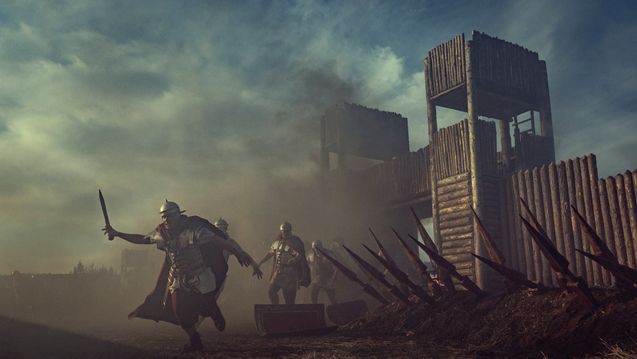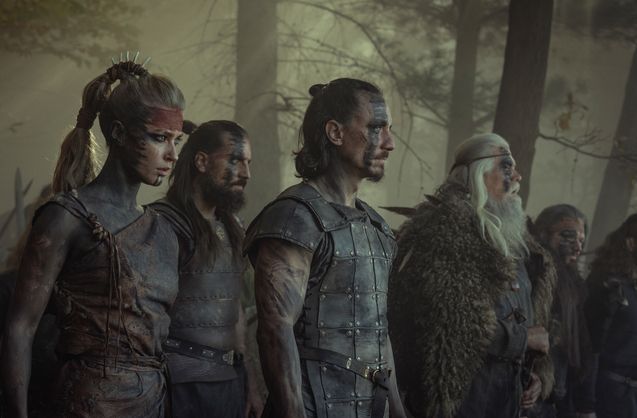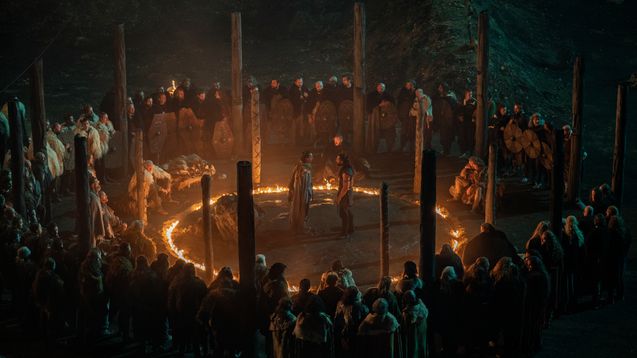The story of the winners
The historical approach of Barbarians was both its greatest strength and its greatest weakness. On the one hand, it showed a certain requirement, through certain rather original biases. The use of Latin for the dialogues of Roman soldiers, for example, always lends a rare credibility to the cultural confrontation between invaders and Germanics. On the other hand, entirely articulated around a specific event, the Battle of Teutoburg, it was necessarily limited by its structure, which detailed the ins and outs of said battle before showing it in the last episode.
Yet in the same format (6 episodes of about 45 minutes), this season 2 can no longer be based on the same key date in German history. Not that the conflict ended after the warrior episode – the Romans then did not fail to retaliate – but the showrunners Jan Martin Scharf, Arne Nolting and Andreas Heckmann no longer have to deal with this deadline. A year after their attack, Thusnelda (historical figure, it is true, quite fascinating), the defector Arminius and Folkwin see the Romans reestablishing their camp. They therefore seek to ally themselves with the powerful Marbod (Murathan Muslu) to stand up to them once again.
We are gray and we are not happy
The very two-headed premise of the whole (the Romans in their camp, the Germans in their variable-geometry forest) clearly gave the screenwriters a hard time. In Season 1, our heroic trio brought together the Germanic tribes despite their new leader’s brand new allegiance to drive the Latins off their lands, all painted up. In Season 2, our heroic trio unites the Germanic tribes despite their new leader’s past allegiance to drive the Latins off their lands, all painted. Fortunately, the cliffhanger of the last episode promises a season 3 that travels a little more, because we should not expect major upheavals in this season 2.
 Can’t wait for the next Asterix
Can’t wait for the next Asterix
Here we go again
Fans will retort that the narrative structure is still less clear than in the first 6 episodes, which very clearly separated the preparations for the battle. Indeed, the fight is more or less scattered in the last hour and a half… and it is precisely in this that it will risk disappointing those who had appreciated the amusing climax of season 1. In addition to the long digital dolly on the field, the confrontation does not shine by its originalitywhether on the scriptwriting level or on the visual level, the greyish photography also not helping to breathe a little war fever into the sequence.
But no matter the fights: this season 2, like the previous one, assumes to emphasize the more diplomatic aspect of the conflict, or even on the importance of personal destinies. Through the character of Marbod, she poses the question of political compromise, the sinews of war in this context. A subject that she nevertheless treats rather as a means of motivating the plot, and that’s it.
This is the great drama of the sequel to Barbarians, which chooses to reproduce fairly faithfully the formula that has made its success, without a historical horizon large enough to really embrace an epic dimension and without any real desire to deepen the tracks launched previously. The characters supposed to gain in importance (the son) plug the sub-plots, the few ideas, in particular the contribution of spirituality, are sadly under-exploited. In short, past the surprise of novelty and certain historical rectitudes, there’s nothing left to do Barbarians only to improvise awkwardly around the famous battlealready behind it, to the chagrin of its authors.
Barbarians is available in full on Netflix since October 21.
Barbarians Season 2: criticism that takes the same and starts again on Netflix


